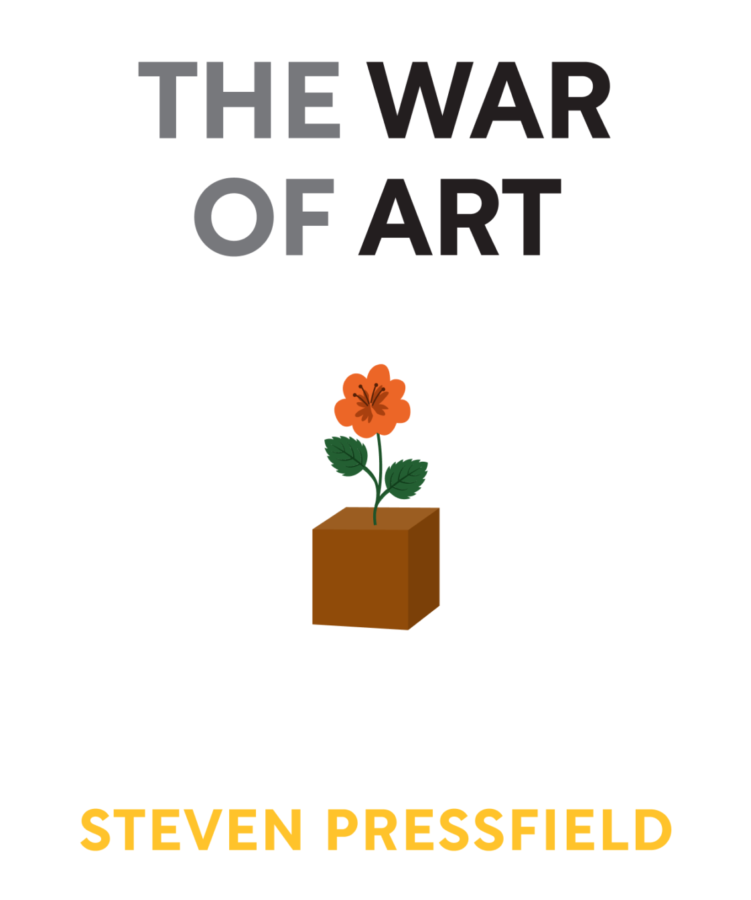‘The War of Art’: A Good Book with a Not-So-Good Ending
December 10, 2021
The War of Art is a nonfiction book from 2002 written by Steven Pressfield. The book shines a light on the forms of resistance used by artists, writers, athletes or musicians that will stop them from achieving their goals. While its main focus is on writers or artists, anyone can get something out of it. It’s all about getting things done and being creative with your work.
The War of Art is laid out in 3 different “books,” so it seems only fair that I review it as such.
Book 1 is all about Resistance, the unseen force that is elicited by “any act that rejects immediate gratification in favor of long-term growth, health, or integrity.”
Resistance will do anything it can to stop creative work from being done. All of Book 1 is defining what Resistance is and what it uses to stop creative minds or rather anyone from doing their work. Book 1 is a great setup for what’s to come. It pulls the reader in and relates to the topic at hand, which is getting creative work finished. 9/10.
Book 2 is all about “Going Pro.” To paraphrase the book, going pro means not being an amateur. A professional artist doesn’t paint so others can see it; they paint for them. The same goes for writers or athletes. They do it because they love it, and they want to experience it for themselves.
Pros will be less susceptible to Resistance, while an amateur will be more. Book 2, while not being as intriguing as Book 1, is still a good read. Near the end, it begins to feel long and starts to drag on, but it does correctly perceive what it feels like to do something for yourself and only yourself. 8/10
Book 3 is the only part I have a real problem with. Book 3 is about a “higher realm,” touching on topics such as guardian angels and the Muses. It just kind of feels like the author had a lot of things to say, but couldn’t correctly work them into the correct category.
The first half of Book 3 is about how there are angels or beings everywhere around us, pushing every single thing on this Earth to keep going, including people. They push writers to keep writing, painters to keep painting, and musicians to keep singing. The fact that the author believes this isn’t the problem, it’s just an odd setting to do it in. While the first two parts seem set in reality, this last one just feels like a passage out of a different book.
Luckily, the last few pages kind of pull it all together, but it’s not enough to fully save the book. It leaves the reader feeling like they missed something that might have explained the tone switch. I give Book 3 a 5/10.
In all, The War of Art isn’t bad, but the last 60 pages just aren’t great, which is unfortunate. Everything before it was well written and grounded, but that’s not enough to save this book. I would recommend this book to anyone who enjoys being creative but has a hard time sticking to it. Being fully honest, you could just read the first 2 parts and skip the last, it’s not worth it. I rate this book 7/10.



Aboagye Tyler • Nov 27, 2023 at 10:01 am
Do you know who designed the cover art?